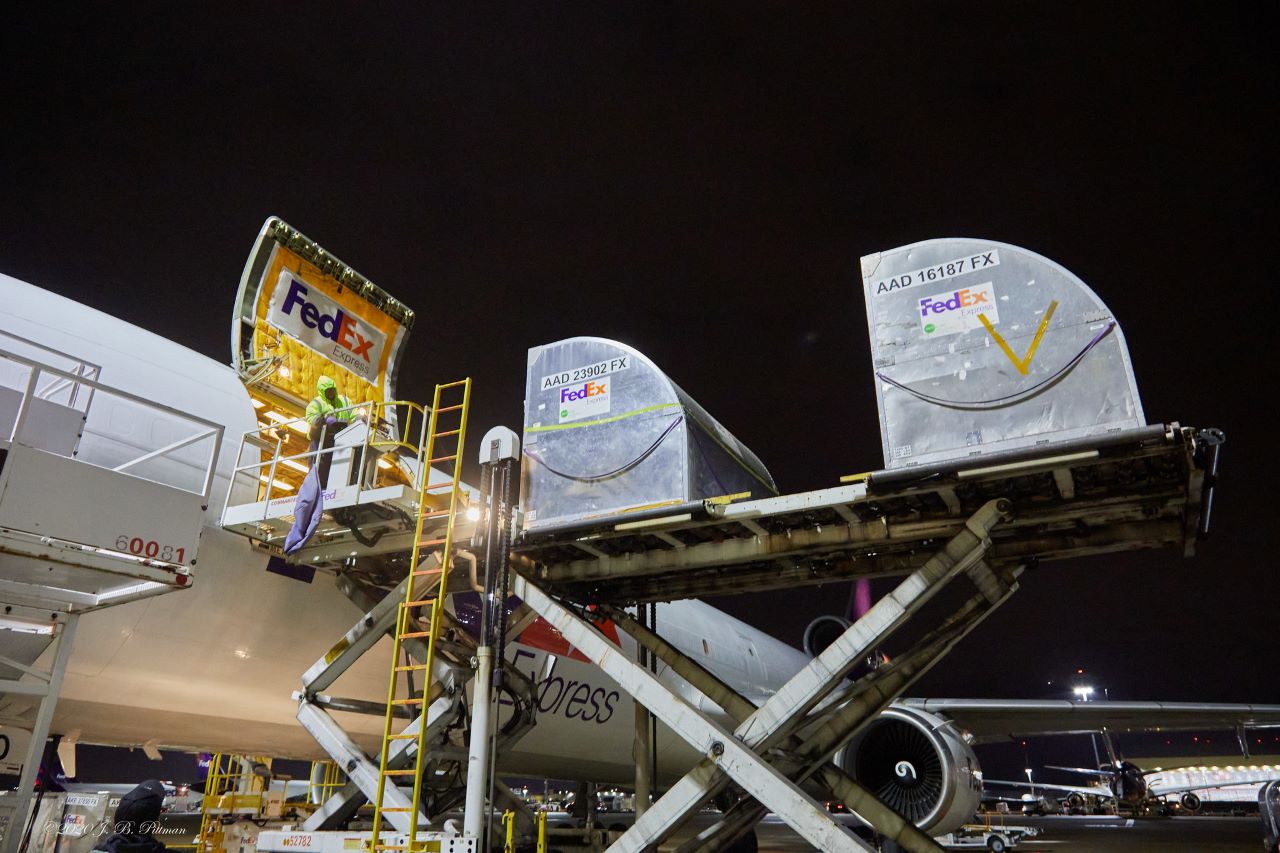Written and provided by FedEx, a FIRST Strategic Partner
Creative Collaboration Translates FedEx Engineering and Expertise to Support International Medical Corps Disaster and Humanitarian Response
International Medical Corps and FedEx came together in 2016 to solve a logistical and engineering challenge: how do we work together to take 50 tons of medical supplies and equipment – designed to deploy as a large-scale, fully operational emergency response field hospital – and redesign its maintenance, storage and medical capacity so that it could be readily deployed anywhere in the world within 72 hours to meet specific needs of an emergency response? And, how could we do it in the most efficient way possible so that first responders could quickly receive the medical supplies and equipment, set up medical care, and begin delivering lifesaving care.
The answer to these questions has evolved into a multi-year collaboration that has leveraged FedEx’s broad-based engineering and logistics capabilities. International Medical Corps works closely with the FedEx team to select the right warehousing solution that enables easy access to repack and store “mission ready packages” that allow for rapid, efficient deployment to meet the needs of specific emergencies – from disease outbreaks, to natural disasters, to large-scale humanitarian crises. The collaboration also extends to developing storage solutions that ensure equipment travels easily on a variety of planes and trucks in the FedEx fleet.
Through the FedEx Cares “Delivering for Good” initiative, International Medical Corps connected to FedEx Express Operations expert, Glenn Carpenter, who assists the organization with operational aspects of its air-freight humanitarian shipments.
Glenn explains, “Multiple issues must be considered, but the most critical when dealing with air freight is the weight and balance of the aircraft, as well as securing the load properly. FedEx manages and coordinates the movement of anything from a letter to a whale, so it is common practice for us (FedEx) to consider weights and dimensions for calculations. They allow me to determine if the shipment is safe to carry on the aircraft, if any pieces need to be strapped to the aircraft floor and where on the aircraft it will fit by size and weight. Each position on the aircraft has certain weight limitations as well as size configuration. If the shipment requires strapping to the floor, we must calculate the number of straps that are required as well as the angle the strap must be placed to securely restrain the piece of freight. Simple calculations with formulas for velocity and force are used daily and with them comes knowledge and useful information.”
Considering the importance of International Medical Corps’ humanitarian relief efforts, FedEx collaborates with the organization’s team to ensure that its equipment and supply packaging move quickly through customs and clearance in the widest range of countries, and that equipment is packed and stored to enable efficient set up in the field – eliminating, when possible, large trucks, forklifts and other equipment that could potentially slow down the delivery of services during a response. For example, International Medical Corps can package one mobile medical kit to take up no more than 55 cubic feet, shippable on one pallet—while a static health facility can include 3,800 lbs. of supplies, totaling 347 cubic feet—to ensure it deploys with the equipment needed for sustainable operation.
From 2016 to 2019, the results of this collaboration helped provide medical care to more than 1.1 million people across the US and Caribbean, and in response to the Ebola outbreak in the DRC. In support of COVID-19 relief efforts, International Medical Corps and FedEx collaborated closely to deploy emergency medical field units and personal protective equipment (PPE), helping serve over 400,000 people across the US, Cameroon, Croatia and the Philippines in the face of the pandemic.
Ronny Elfassy, International Medical Corps’ Emergency Response Logistics Specialist, states, “Getting people and supplies where they’re needed, when they’re needed – no matter where or what the conditions – is absolutely critical to emergency response. Our collaboration with FedEx means that we can leverage its expertise to manage global assets, solve logistical and engineering challenges before a disaster strikes, ultimately shortening our response time and helping to bring urgently needed health care where it’s needed most.”
